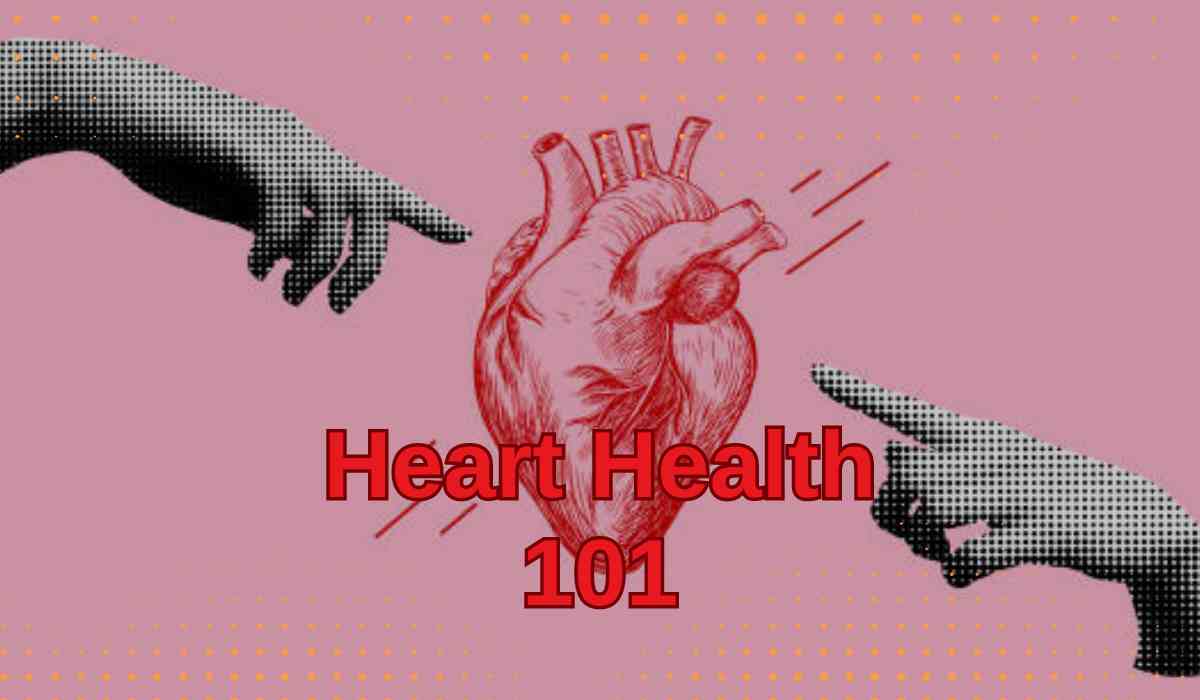Maintaining optimal heart health is essential for living a vibrant and fulfilling life. Cardiovascular disease remains a leading cause of mortality worldwide, including in India. However, by adopting specific lifestyle and dietary changes, individuals can significantly improve their heart health. This article outlines practical and easy-to-follow strategies for nurturing a healthy heart.

1. The Role of a Heart-Healthy Diet
Your cardiovascular system is greatly impacted by the food you consume. Eating a range of foods high in nutrients can help ward off heart disease. Consider the following dietary recommendations:
-
Prioritise Whole Foods: Opt for fresh fruits and vegetables, whole grains like quinoa and barley, and lean proteins such as fish, poultry, and legumes to promote heart health.
-
Minimise Salt Consumption: Excessive salt intake can elevate blood pressure, increasing the risk of heart conditions. It's wise to avoid processed foods, which are often high in sodium.
-
Embrace Healthy Fats: Incorporate healthy fats into your diet by eating nuts, seeds, avocados, and using olive oil. Steer clear of trans fats commonly found in fried and processed foods.
-
Limit Sugar Intake: Excessive sugar can lead to conditions like obesity and diabetes, both of which heighten the risk of heart disease. Choose natural sugars found in fruits and reduce consumption of sugary beverages and snacks.

2. Adopting Heart-Friendly Lifestyle Habits
Lifestyle choices are critical in maintaining heart health. Here are some key changes that can make a significant difference:
-
Engage in Regular Exercise: Aim for at least 150 minutes of moderate aerobic activity weekly, such as walking, swimming, or cycling, to strengthen your heart.
-
Give Up Smoking: Heart disease is greatly exacerbated by smoking. One of the best things you can do to protect your heart is to stop smoking.
-
Moderate Alcohol Consumption: Drinking alcohol in excess can lead to high blood pressure and heart issues. Stick to the recommended guidelines: no more than two drinks per day for men and one for women.
-
Manage Stress Effectively: Chronic stress negatively impacts the heart. Stress can be decreased by practices like yoga, deep breathing, and meditation.
3. The Importance of Regular Heart Health Screenings
Routine medical check-ups are vital for detecting and managing potential heart problems early. Here’s why regular screenings are necessary:
-
Keep an eye on your blood pressure: Although hypertension frequently shows no symptoms, it can be harmful if ignored. This condition can be managed with regular monitoring.
-
Check Cholesterol Levels: High cholesterol can cause plaque buildup in arteries, leading to heart disease. Timely dietary and lifestyle interventions are made possible by routine surveillance.
-
Control Blood Sugar Levels: Diabetes is a significant risk factor for heart disease. Keeping blood sugar levels under control is essential for heart health.
-
Manage Weight: Excess weight can put additional strain on the heart. Regular weight assessments and advice from a healthcare professional can aid in weight management.
4. Surprising Facts About Heart Health
Here are some interesting facts about heart health that you might not know:
-
Heart Disease Can Begin Early: The process of atherosclerosis (plaque buildup in arteries) can start in childhood, highlighting the importance of a healthy lifestyle from a young age.
-
Sleep and Heart Health are Connected: Poor sleep can contribute to high blood pressure and heart disease. Every night, try to get seven to eight hours of good sleep.
-
Women’s Heart Attack Symptoms May Vary: Unlike men, women may experience symptoms such as nausea, shortness of breath, and back pain during a heart attack, rather than the classic chest pain.
5. Essential Heart Health Tests
Several diagnostic tests can provide insight into your heart health. Discuss with your healthcare provider which tests may be appropriate for you:
-
Electrocardiogram (ECG): This test measures the electrical activity of the heart and helps detect any irregularities.
-
Echocardiogram: An ultrasound of the heart that provides images to identify structural problems.
-
Stress Test: Evaluates how well your heart handles physical activity, typically performed on a treadmill or stationary bike.
-
Cardiac CT Scan: offers detailed images of the heart and its blood vessels to identify potential blockages.

Conclusion
Maintaining heart health is a lifelong commitment that involves eating a balanced diet, staying physically active, making positive lifestyle changes, and having regular medical check-ups. By embracing these strategies, you can significantly lower your risk of heart disease and enjoy a longer, healthier life. Remember, it's never too late to start caring for your heart.
Inputs by Agencies
Image Source: Multiple Agencies
Ⓒ Copyright 2024. All Rights Reserved Powered by Vygr Media.





















